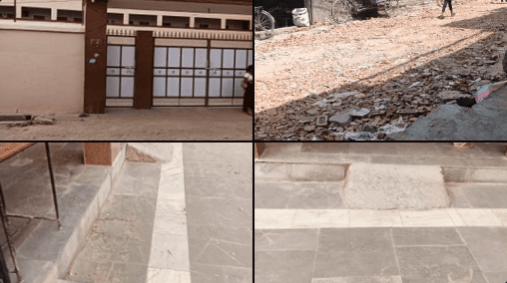![Shocking side to UGC-NET exam controversy: Disability rights have long way to go [here's why] Shocking side to UGC-NET exam controversy: Disability rights have long way to go [here's why]](https://data1.ibtimes.co.in/en/full/799396/shocking-side-ugc-net-exam-controversy-disability-rights-have-long-way-go-heres-why.jpg?h=450&l=50&t=40)
Another controversy in higher education broke out when the National Testing Agency (NTA) cancelled its UGC-NET examination. This cancellation is reported to have affected around 11 lakh exam candidates. Information from the National Cyber Crime Threat Analytics Unit of Indian Cyber Crime Coordination Centre (I4C) under the Ministry of Home Affairs indicated that the integrity of the examination may have been compromised.
With this background, a crucial issue has been brought forward by a disability rights advocate and a UGC-NET candidate on social media. Kavya Mukhija drew attention to the dismal conditions faced while appearing for the now-canceled examination.
In her 'X' post, she states, "The NTA needs to realise that there are disabled people too, who had to travel across cities with caregivers and parents and navigate inaccessibility to appear in this exam."
As a wheelchair user, Mukhija has described the issues she faced in detail through her posts made public on 'X'. At her exam centre in Rohini, accessibility and mobility were key issues.

The access road was not navigable and car parking was not catered for at first. Further, even to use the exam premises, the ramps were too steep for "wheelchairs manoeuvred by humans," and "the washrooms had a couple of stairs to get in."
She went on to state, "The school did not have a wheelchair on campus. One of the candidates who travelled from another city had to crawl to reach the classroom. There as well, she was unable to use the desk and chairs and a separate chair had to be arranged for her."
I appeared for the UGC NET on June 18, which has now been cancelled. It is ableist and does NOT care about disabled candidates.
— Kavya Mukhija (@KavyaMukhija) June 19, 2024
Here's what happened. ? #DisabilityTwitter
Mukhija expressed her disappointment in the cancellation and raised a significant question: "Why did the NTA ask for disability details when they could make no arrangements to ensure that the centre was accessible?"
She also addressed the issue of insensitivity of the invigilators, describing how her mother was also not permitted to wait on the exam premises and had to wait outside.
In light of these posts, public support has poured in, indicating the need for concrete action to be taken. This is not only at the physical infrastructure level, but also in terms of allowing for persons with disabilities to appear for examinations without constraint, thereby facilitating diversity and inclusion.

















